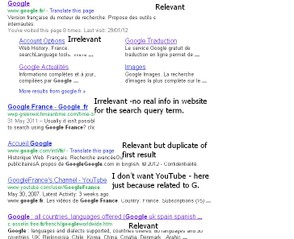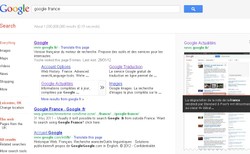Times have changed for search engines, from static to dynamic. Social networking, blogging, micro-blogging, mobile-connected, iPad- or iPod-ready internet-savvy web audiences now need instant news and information to feed their habit. And they can get it. Elsewhere.
I have no gripe with the Google homepage (for whatever country or language) being minimalistic. I have no issue with it changing, seemingly on an ever increasing basis, as Google tries to stem the haemorrhaging of it's user-base. But why make cosmetic changes to something that is not broken?
It is not how you present yourself on your homepage, Google, that is the problem. The problem is that you are not linking me to the sources of information that I need. Think! What is fundamental to all that you offer your loyal subjects? Access to information. For what? Research. And what does research need? Relevant, current information.
And what do you give me, most of the time? What you consider to be relevant information, that is oft times out-of-date. It's just not good enough! You are becoming irrelevant to my (our) search needs!



















 Gold Barson 10/19/2017
Gold Barson 10/19/2017
 Creating My Own Websiteon 02/04/2021
Creating My Own Websiteon 02/04/2021
 Weights and Measures of Gold Barson 10/20/2017
Weights and Measures of Gold Barson 10/20/2017
 Types of Goldon 10/20/2017
Types of Goldon 10/20/2017


Comments
Great summary of SERPs, it's been interesting seeing the introduction of more personalisation over the years